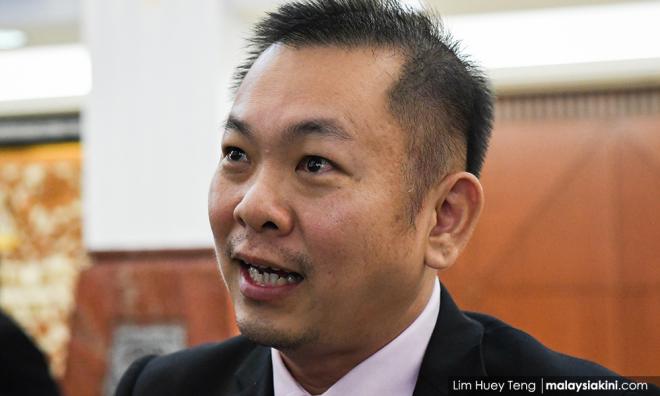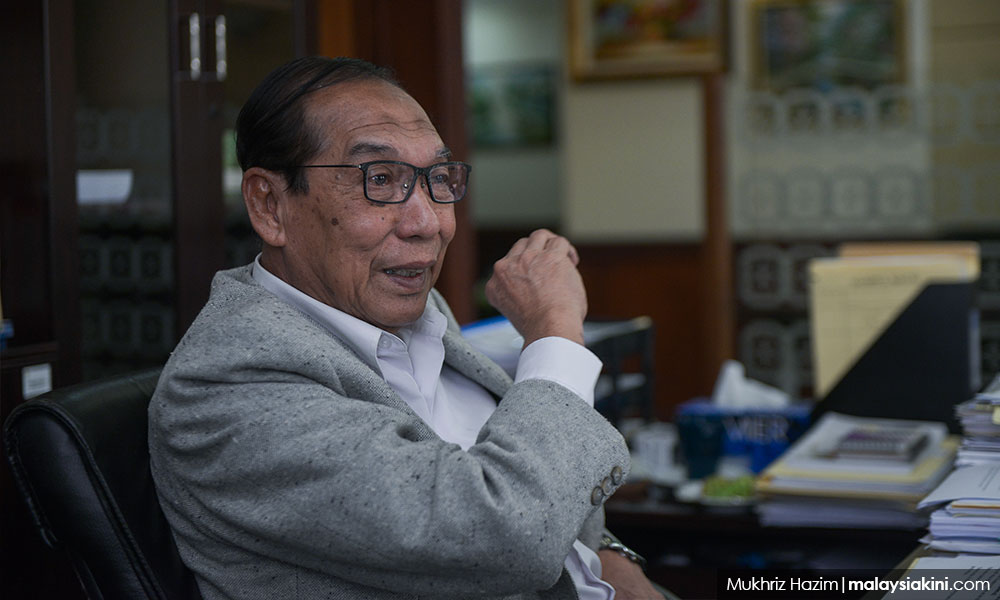East Malaysian lawmakers unhappy with proposed new electoral system

Several East Malaysian lawmakers have expressed their discontent with the proposed party-list proportional representation electoral system to replace the current first-past-the-post (FPTP) system as recommended by the Electoral Reform Committee (ERC).
Kota Kinabalu MP Chan Foong Hin (above) agrees that the FPTP system should be reformed but said he would prefer the mixed-member proportional (MMP) system as practised in Germany and New Zealand.
“I support the move to reform the current FPTP system (but) the MMP is better than PR (proportional representation)," Chan told Malaysiakini today.
“PR has problems with the (need for) local connection. It is difficult to imagine all MPs are not constituency-related (but) to make our election system more proportional is good.”
ERC chairperson Abdul Rashid Abdul Rahman had previously said they will propose to the government to replace FPTP with a proportional representation system for parliamentary seats only.
This new proportional representation system will require voters to choose from a list of parties seeking to represent specific states. The number of seats won by each party will then be distributed proportionally.
Abdul Rashid (below) had also said the ERC recognises that Malaysia has three political units - Peninsular Malaysia, Sabah and Sarawak - and they will be treated separately under the recommended proportional representation system.

Under this proportional representation system, he said, local-based parties or minority parties will still stand a chance to win seats as long as they were to reach a certain threshold of votes, for example, five percent of votes.
Chan said Sabah and Sarawak would likely agree with the proposed system if the threshold was based on one unit instead of nationally.
“If (the threshold is measured on a) national level, it is difficult for Sabah and Sarawak parties,” he said.
Santubong MP Wan Junaidi Wan Jaafar also pointed out that advanced countries that practice the proportional representation system have a high proportion of the urban population.
“But in Malaysia, we still have a large rural population. Sarawak and Sabah particularly, nearly 45 percent are rural population.
“The drawing of the constituencies must reflect the fairness and balance between the urban and rural areas,” he said.
Julau MP Larry Sn’g told Malaysiakini he preferred the FPTP system for Sarawak as opposed to a proportional representation system, especially in rural constituencies.
He said though the rural constituencies have small populations, their issues need greater attention due to higher levels of poverty.
“The leaders elected to represent the area must have a strong connection with the people which, I believe, the FPTP system enshrines that principle better than PR (proportional representation),” Sn’g said.
Though state seats would continue using the FPTP system and maintain the local connection with the rakyat, Chan said MPs should also understand certain constituency issues as well.
“For example, one should understand certain pasar issues, it is important to touch the ground,” he said.
Wan Junaidi also lamented that elected representatives may become distant from the constituents under the proposed proportional representation system.

He said both the MPs and excos were working to care for the general welfare of the people, including handling issues involving drainage, road and schools in their constituencies.
Under the proposed proportional representation system for parliamentary seats, the people will only have state exco members to rely on for such matters, which is not enough as the rakyat needs more options, he said.
“To the people, all their grievances are actionable by the representatives. People will not be able to accept otherwise, no matter how good the government as a whole is doing,” Wan Junaidi said.
Meanwhile, Sn’g said he does not necessarily believe the proportional representation system was superior to FPTP.
The more important thing now, he said, was for the Election Commission (EC) to work on the delineation of constituencies to address the huge disparity between the number of voters in rural and urban seats.
He said he prefers a system like the presidential system where the head of the executive branch is directly elected by the people.
“Our country should move towards a system whereby there is more direct election for the office of the prime minister and local council seats.
"That way, we can justify having someone like Prime Minister Dr Mahathir Mohamad as the leader of our government despite him being represented by a minor party in government,” he said.
Abdul Rashid had said the ERC’s interim report, which will include the recommendation of the proportional representation system, will be presented to Mahathir soon, though he did not state a specific date. - Mkini
✍ Credit given to the original owner of this post : ☕ Malaysians Must Know the TRUTH
🌐 Hit This Link To Find Out More On Their Articles...🏄🏻♀️ Enjoy Surfing!



















Post a Comment